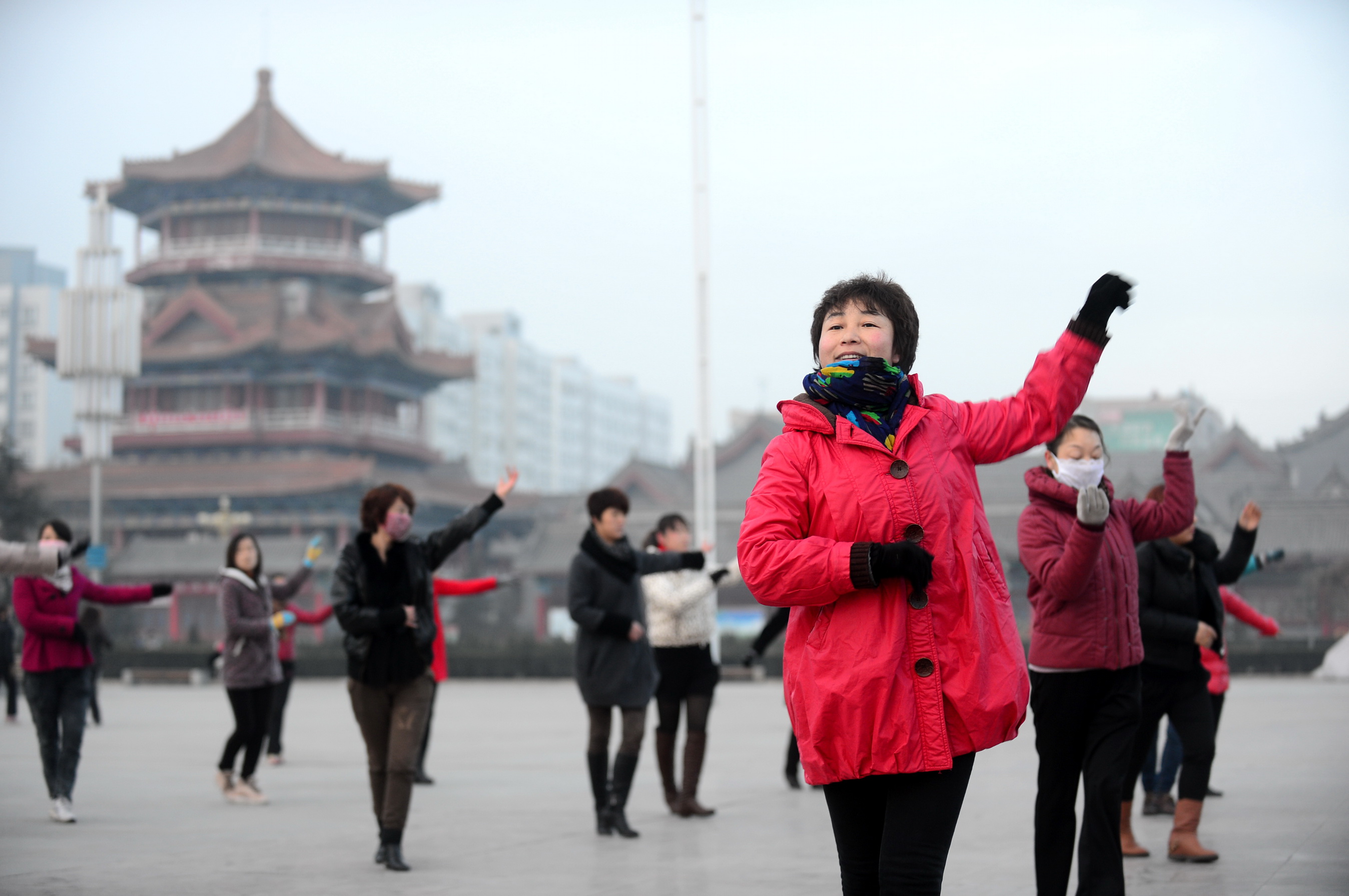
Maoists prevent New Constitution
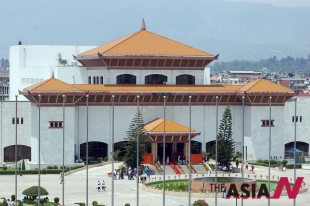
Prachanda becomes the Spoilsport
The Maoists of Nepal, led by Pushpa Kamal Dahal “Prachanda,” has prevented the popularly elected Constituent Assembly (CA) from promulgating the much-awaited democratic constitution, disappointing all the peace loving Nepalese people.
The political parties, including the Maoists, had promised to draft and promulgate the new constitution by January 22, 2015 during the CA election held in November 2013. But the parties failed to meet the deadline. Instead, the parties that had agreed to hold elections for the second CA in five years after the first CA was elected in 2008 failed to draft the new constitution due to a lack of consensus among the parties to enable the drafting of the document on a majority basis. The Maoists had taken a U-turn from their commitments after they were downgraded to the third position in the second CA from the largest party in the first CA. The ruling parties, civil society and independent analysts have blamed the Maoists and the regional parties for the failure of the second CA to accomplish its task. However, the tenure of the CA will expire only in 2017.
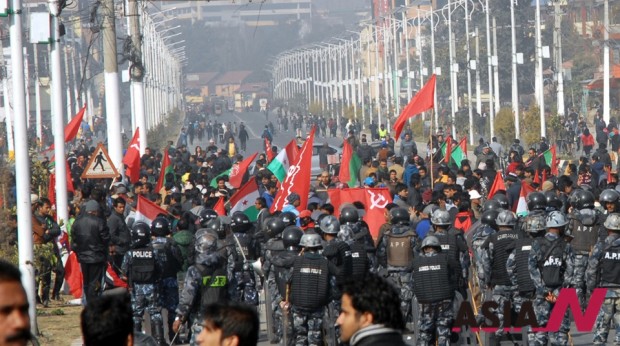
The Maoists, which have waged a decade-long violence in which some 17,000 Nepalese were killed from 1996 to 2006, exhibited their violent nature in the CA meeting by breaking the chairs, snapping mics and hurling them at the leaders of the ruling parties and making attempts to manhandle the chairman of the CA when the ruling parties tried to initiate the process to draft the new constitution by following a democratic process after all efforts made to forge consensus between all parties failed to yield any result. The former rebels did not allow the chief whip of the ruling Nepali Congress to go to the rostrum to table the proposal for the drafting of the new statute.
The Maoists, having only 80 seats in the 601-member CA, were supported by regional and communal parties whose strength is negligible in the jumbo assembly.
The political parties in Nepal have been divided over the issues of governance system, judiciary and election system and the number and nature of the federal units for the past four years. The thorniest is the issue of federalism. The Maoists and the regional and communal parties want to federate the country on the basis of ethnicity with only one province in the southern plain, where 51 percent of the total population lives, and at least eight units for the remaining 49 percent of the people. However, the pro-parliamentary parties led by Nepali Congress opposed federation based on ethnicity. They emphasized geography and natural resources as the basis of federalism. The first CA elected in 2008 and dominated by the Maoists was dissolved in four years when the parties failed to sort out the disputes on the above issues and the elections for the new CA were held in November 2013.
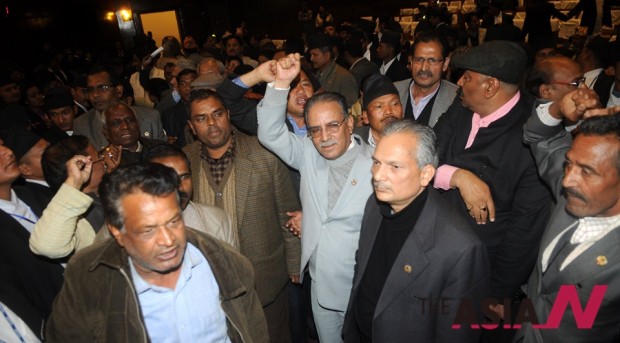
However, the people outright rejected the agendas of the Maoists, Madhesi (regional parties of southern Nepal) and communal parties in the 2013 polls and gave their mandate to the Nepali Congress and the Communist Party of Nepal (Unified Marxist Leninist), the two powerful parliamentary parties of the post 1990s. The Maoists (UCPN-Maoist) won only 80 seats in total in 2013 while it had won 175 seats in 2008. The Nepali Congress won 196 seats and the CPN-UML 175 seats. The pro-royalist Rastriya Prajatnatra Party, which had only four seats in 2008, won 24 seats. Similarly, the strength of mushroomed Madhesi parties dropped by more than 50 percent in 2013 polls compared to the 2008 polls. A coalition government of Nepali Congress, CPN-UML and other small pro-parliamentary parties was formed under the premiership of the Nepali Congress leader Sushil Koirala in January 2015. Prime Minister Koirala was to step down after promulgating the new constitution January 22, 2015 and a new government was to be formed under CPN-UML chair K. P. Oli, the ardent critic of the Maoists. However, as the constitution was not promulgated, Koirala is likely to continue his office until May.
Mahesh Basnet, one of the sitting ministers close to CPN-UML chair K. P. Oli, who is expected to replace Koirala, said that the tenure of the present government had been extended. Oli himself had claimed that he had no interest in leading the government.
Though the pro-parliamentary parties, which have more than 420 seats, could easily draft and promulgate the new statute by adopting the constitutional provision of a two-thirds majority, they spent a year trying to forge consensus with the Maoists and Madhesis and when it was time to promulgate the new constitution, the Maoists went on a rampage at the crucial CA meetings. The ruling parties had secured over 65 percent of popular votes in the 2013 election while the opposition got less than 25 percent of votes with only 133 seats in total. Still they have succeeded to foil the attempts of the ruling parties from initiating democratic process to draft the new constitution.
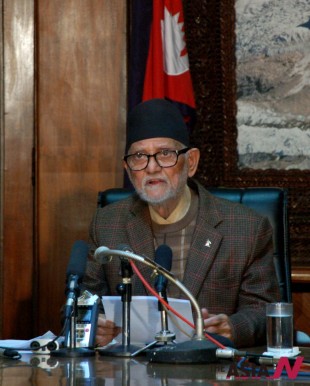
Prime Minister Koirala in a televised address to the nation on January 9, condemned vandalism meted out by the Maoists in the CA and expressed his commitment to draft and promulgate the new constitution at the earliest possible.
Koirala said he was distressed by the assaults on the people’s aspirations and trust as a result of the failure to deliver the constitution by the promised deadline.
Oli termed the vandalism in the CA as monkey dance. After the opposition parties made attempts to attack Oli inside the CA, the ruling parties denied holding any talks with the opposition parties until they ended the disruption of the CA meeting.
The ruling parties look determined to begin the process of drafting the constitution even after the deadline expired while the opposition parties are adamant to obstruct the process by stating that the constitution should be drafted in consensus, leading to polarization of the parties.
“The Maoists are neither ready to forge consensus nor do they allow us to initiate a lawful process to draft the new constitution. They have not shown any respect to the people’s verdict,” Finance Minister Dr. Ram Sharan Mahat told reporters.
On the other hand, Maoist boss Prachanda warned of serious consequences if the ruling parties make any move to draft and promulgate the new constitution on the basis of majority.
Obviously, the Maoists have been in a defensive position after they lost the elections and suffered a division in the party. If they cannot prevent the democratic forces, which were also in power when they waged a war, from promulgating the statute, they cannot justify the conflict in which 17,000 people were killed. CA was the main agenda of the Maoists. So, they will apply any measure to foil the attempt of the government and the ruling parties to draft the new constitution on their own.
The Maoists had given up their violence by signing a 12-point agreement with the seven parliamentary parties in New Delhi, India in November 2005 during the direct rule of King Gyanendra. The agreement brokered by the then Indian establishment, which was also accused of supporting the Maoists, culminated in abolishing the 240-year monarchical rule in April 2006 through a peaceful street agitation of the parliamentary forces. Abolition of monarchy and election to the CA were the two key demands put forth by the Maoists during the insurgency. Late Girija Prasad Koirala had led the alliance of the democratic forces while Pranchanda the Maoists in the 12-point agreement of 2005 and the comprehensive peace agreement of 2006. Girija Prasad Koirala died in 2010 and Prachanda, whose popularity diminished much over the years, has used all his strength to make the present CA a failure. Moreover, change in the guard of New Delhi last year had put the Maoists in a difficult situation as the Bharitiya Janata Party government led by Narendra Modi could not be liberal to the Maoists as the previous government led by Congress I.
Local media and the Nepalese people have criticized the Maoists for their vandalism. The social sites are full of harsh comments targeting the Maoist boss Prachanda, stating that he was responsible for the failure of the CA in delivering the new constitution. The Maoists and regional parties have blamed the CA chair Subas Nembang for inviting the situation in which the Maoist lawmakers went berserk.
But surprisingly, a few political pundits in Kathmandu claim that the Maoists and the regional and communal forces were receiving funds from European countries and Western organizations. Recently, a group of the Kathmandu-based European ambassadors secretly met C.K Raut, who had been imprisoned in a jail of Chitwan in Central Terai for launching a sectarian movement in southern Nepal. The government expressed ire against the envoys by organizing a press meet. The secret meeting with Raut by the envoys also justifies the claim that these political groups were receiving funds from the West.
Maoists reject majority ruling
Many argue that a few European countries and Western organizations do not want to see political stability in Nepal so that they can keep on taking advantage of the geo-political situation of Nepal in the region dominated by emerging economies like China and India.
Whatever the case may be, the Nepalese people have failed to get the new constitution and Prachanda became the spoilsport this time.
Although Prime Minister Koirala and other leaders of the ruling parties have reiterated that they would draft and promulgate the new constitution soon, many political analysts argue that Nepal will not be able to get the new statute until the issue of federalism completely fades away. They believe that federalism and secularism were not home-grown demands but imposed by outsiders.
“Drafting the constitution looks impossible unless the issue of federalism fades,” Bishnu Nisthuri, former president of the Federation of Nepali Journalists and vice president of the Asia Journalist Association said.



